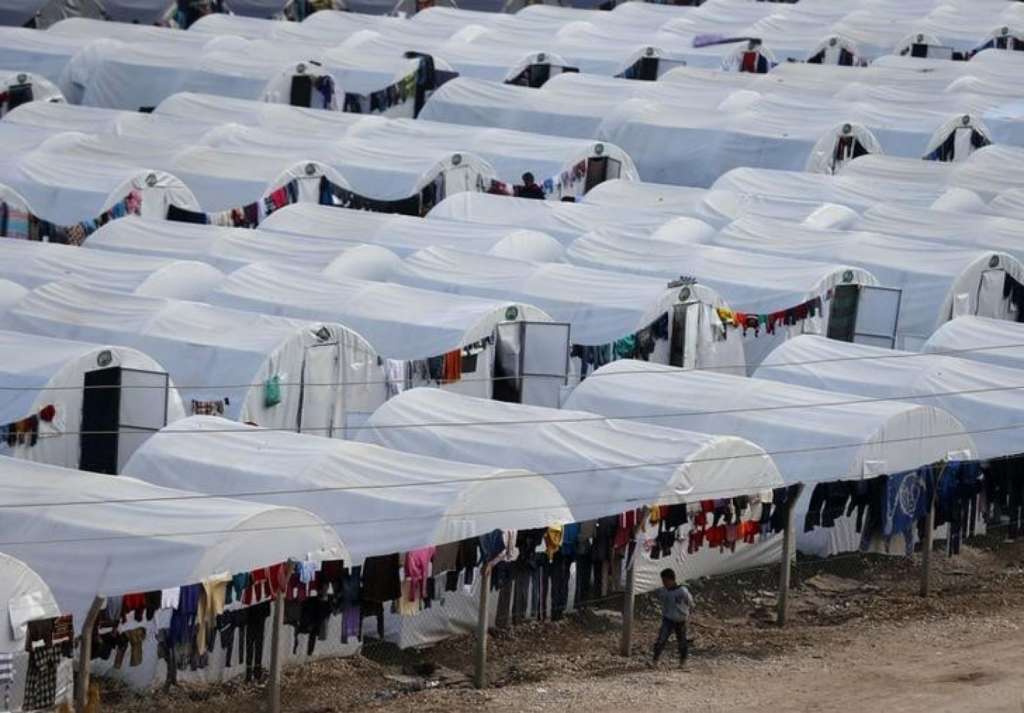Ankara-Many Syrian refugees who were displaced to Turkey have decided to be more than just numbers in the records of the United Nations, and people waiting to receive aid. They have become a force of work, production, and growth for Turkey and its development.
Many Syrian businessmen and craftsmen have turned their suffering into a new chance of work and investment in Turkey, waiting the liberation of their country.
Refugees who have escaped the war in Syria have resumed their work in different industries and services in Turkey and exported them to the liberated areas of Syria amid a rise in businesses and partnerships launched by Syrians in Turkey.
A new study on the circumstances of Syrian refugees in Turkey has revealed the recovery of Turkish exports to Syria despite the suspension of official relations with the Syrian regime after the outbreak of the civil war in March 2011; figures of Turkish commodities spread in the Syrian markets in the regions liberated from ISIS on the Turkish border have neared the figures of trade exchange between the two countries before the crisis.
Turkey’s hosting of thousands of Syrian craftsmen and manufacturers has provided both parties with new economic opportunities thanks to the infrastructure of the local economy despite difficulties usually faced by countries that have welcomed refugees.
The age factor has been the main contributor to the integration of refugees in the Turkish market. The youth – considered the most effective workforce -have represented more than 60% of 725,000 refugees in Turkey.
According to the study, unlike European countries, Ankara has succeeded in transforming the refugee crisis into a positive and productive factor. The Turkish market currently has around 763,000 Syrians qualified for work.
Statistics have shown that university qualifications among Syrian refugees who migrated to Europe have reached 30%, which has exceeded the rate of university graduates in many European countries like Germany.
These statistics led Turkish President Recep Tayyip Erdogan and his government to reiterate their intentions to naturalize qualified Syrian refugees to secure their residence in the country and avoid their displacement to other European states. The International Monetary Fund (IMF) has urged countries like Germany, which have hosted Syrian refugees to integrate them in the labor market.
In a report on the German economy, the IMF has pointed that aging has negatively affected the economy and labor market in Berlin. In January, the Turkish government decided to facilitate the integration of Syrian labor in the local market, which has raised the number of refugees who received work authorizations.
The Syrian presence plays a significant role in supporting the demand in the Turkish market given that they contributed in raising consumption and production in Turkey. This existence has also led to transfer capitals, networks of trade relations, and a factor to return Turkish exports to Syria.
However, learning the Turkish language has been considered one of the main challenges that face the integration process. The Turkish authorities have tried hard to teach refugees, but the outcomes were less than expected.
The lack of information on refugees represents another challenge; the country has witnessed a big wave of asylum, therefore, Turkish authorities didn’t have sufficient time to collect the needed data. The study also highlighted many other security, legal, and funding-related challenges in addition to the internal political opposition to the foreign policy adopted by the Turkish government.
At the same time, the weakness of the international performance in coping with the asylum crisis and slowness in fulfilling promises concerning refugees have worsened the crisis and delayed the practical steps to settle it. The study stressed the importance of not treating the Syrian refugees as temporary visitors, because it will contribute to maximizing the humanitarian crisis.
Taher Ahmad Kasem, the head of the Syrian Trade and Industry Chamber in Turkey, said that the association, which was established two years ago near the southeastern district of Reyhanlı, now has 600 members.
He added that the chamber is planning to launch branches in the southern provinces of Mersin and Gaziantep.
The association submitted the required documents to export sugar to Syria from Turkey. It also aims to import several agricultural products which are produced by farmers in Idlib and the neighboring region near the Turkish border, including lentils, cotton and cumin.
